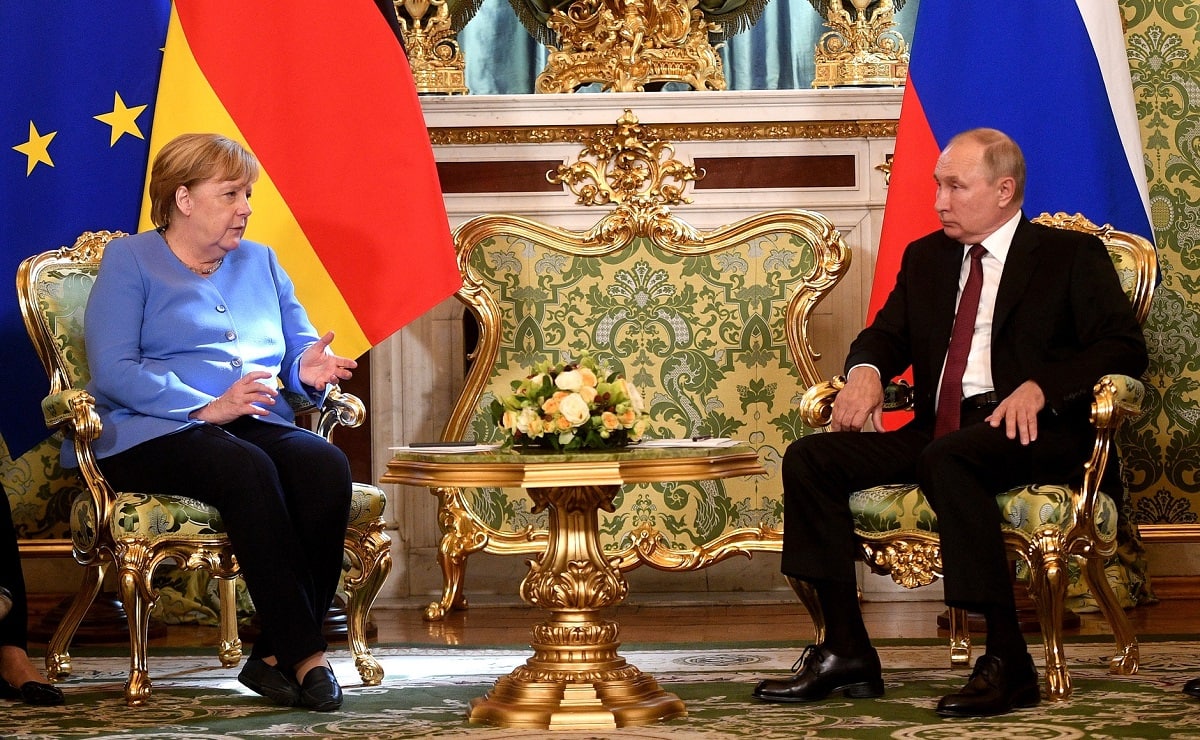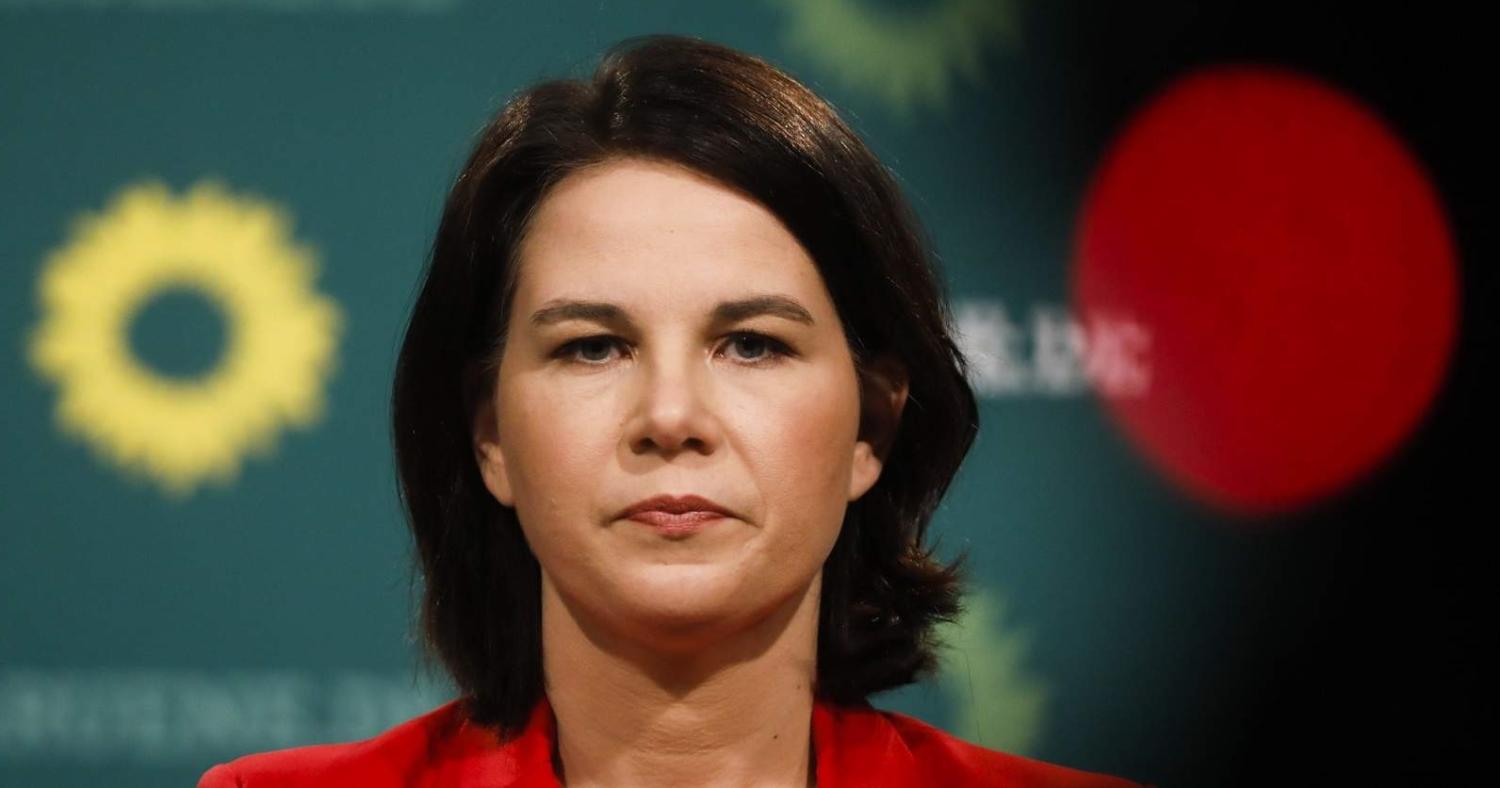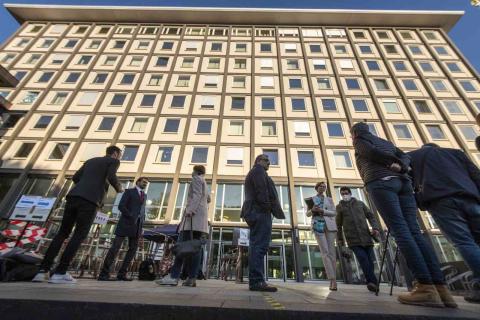It is less than two months since Angela Merkel stood down as chancellor of Germany, and a “traffic light” coalition government comprising the Social Democrats, Greens and Free Democrats was installed in Berlin.
We are still getting to know the faces in the new administration. One of them, Foreign Minister Annalena Baerbock, came to international attention for the first time in January as she steered her way with evident confidence through official visits to Kyiv and Moscow amid what is arguably the most dangerous European crisis since the Cold War.
The government Baerbock represents is being criticised for failing an important early test. Germany’s Western partners are calling for it to show leadership in facing down Vladimir Putin, who has amassed Russian troops on the border with Ukraine and conducted threatening military manoeuvres with Belarus, while demanding guarantees that Ukraine will never join NATO. German solidarity will be crucial to the effectiveness of the package of punitive measures the West plans to apply if Putin oversteps the mark. Berlin’s leverage derives from its political weight within Europe as well as its significant trading relationship with Russia. It also holds the keys to the Nord Stream 2 gas pipeline project, which will see Russian gas flow directly into the German market.
Olaf Scholz, as chancellor, has failed to impress those who are looking for an effective Russia strategy.
When Merkel was in charge, Germans took comfort from the belief that their leader had some natural advantages in dealing with Vladimir Putin – including Russian language skills and the influence that comes with long-term political incumbency. But Olaf Scholz, her successor as chancellor, has failed to impress those who are looking for an effective Russia strategy. He has been derided within Germany for offering little more than the mantra that “nothing is solved by confrontation”. Scholz and his Social Democrat Party (SDP) colleagues have been reluctant to entertain measures such as the suspension of Russia from the SWIFT banking transaction system, and initially dismissed discussion of Nord Stream 2 as a lever, describing it as a “purely private sector project”.
Enter Annalena Baerbock, who as leader of the German Greens has assumed the role of foreign minister in the coalition government. The Hanover-born Baerbock has strong academic and activist credentials. She has been a member of the Greens since she was 25 and has a Master’s degree in international law from the London School of Economics. She abandoned doctoral studies to win election to the Bundestag in 2013, and rose quickly to become the leader of the party’s Brandenburg wing and then national co-leader. She was put forward as the party’s Chancellor candidate for the 2021 election – the second woman to be nominated for this position after Merkel. She emphasised “values-guided” foreign policy during the election debates.

Baerbock has had to overcome bias regarding her gender and age. (She is 41.) She was the target of misogynistic social media attacks during the campaign and her appointment as foreign minister prompted scepticism from mainstream German observers about her lack of experience. But her handling of the Kyiv and Moscow visits in mid-January blunted this criticism. In Kyiv, she told her hosts that an attack would come at a high price for the aggressor. In Moscow, standing beside her 72-year-old Russian counterpart Sergei Lavrov, Baerbock flatly told a press conference that the military build-up had “no understandable reason”, and was “hard not to see this as a threat”. She warned that “there will be no security in our joint European home if there are no rules everyone can rely on”. She added that “we have no choice but to follow them, even if there is a high economic price”. She also took the Putin regime to task for the imprisonment of Alexei Navalny and its crackdowns on civil society.
In my four years as Australian ambassador in Berlin, I rarely heard a German public figure speak so frankly.
The new foreign minister and those who think like her will have to work hard if they are to win broad and enduring support for their vision of “values-guided” foreign policy.
Other elements of the German establishment will struggle to take a more assertive approach to Russia. The SPD emphasises that positive engagement with Moscow was instrumental in defusing tensions across the continent at a time when Germany was itself at the front line of the confrontation between East and West. Berlin’s passive approach also reflects a strong aversion to conflict among the German population – a result of deep national reflection following the Nazi era. Germany’s position that it cannot allow the export of lethal weapons to a conflict zone like Ukraine has its roots in this past.
But Putin now seems determined to bulldoze the European collective security arrangements that Germany has helped shape in more recent decades. Continued vacillation leaves the government open to accusations that it is merely prioritising commercial interests over values.
The German position does seem to have stiffened a little in recent days – likely in response to internal advocacy from its new foreign minister as well as public criticism and international lobbying. Scholz has confirmed his support for Baerbock’s position that Nord Stream 2 and Russia’s suspension from the SWIFT system are part of the “whole bandwidth of responses” available to Germany. And support does seem to be emerging among the allies for sanctions that target Russian oligarchs.
But the new foreign minister and those who think like her will have to work hard if they are to win broad and enduring support for their vision of “values-guided” foreign policy, especially when it comes to Russia. Unless they are successful, there is a risk that a “paralysing fear of war” may actually increase the chance of conflict by undermining attempts to build a deterrent.
* This article was corrected to note Baerbock was born in Hanover, not Hamburg as originally published.

